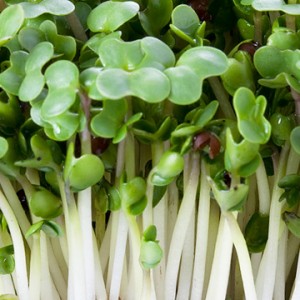
More evidence that low-calorie sweeteners are bad for your health
Studies show that artificial sweeteners can raise the risk of hypertension, metabolic syndrome, type 2 diabetes and heart disease, including stroke.

Natural Health News — Preventing flu could be as simple as adding a daily drink of broccoli sprout juice, according to new research.
Brassica vegetables such as broccoli, cauliflower, kale and cabbage are particularly rich in a plant chemical called sulforaphane (SFN).
Young broccoli sprouts have a particularly high level of SFN compared to other foods and a homogenate (or puree) of broccoli sprouts has previously been shown, in the lab, to limit the influenza virus’s ability to replicate as well as increasing natural killer (NK) cell activity, thus boosting immunity.
This small randomised, double-blind, placebo-controlled human study took place during the flu season of 2012-2013.
It was designed to investigate the effects of broccoli sprouts on immune cell activity, especially NK cell activity, in blood of non-smoking, healthy subjects deliberately infected with a live attenuated influenza virus (LAIV).
» Brassicas contain an immune enhancing substance called sulforaphane (SFN). Young broccoli sprouts contain very high amounts of SFN.
» In a new study a daily ‘shake’ of broccoli sprouts over days seemed to protect people infected with the influenza virus for longer than a comparable ‘shake’ of alfalfa sprouts.
» This study ads to previous data showing that that SFNs have a protective effect on the lungs.
The participants were divided into two groups. Over a four day period each of which was given a daily 200g ‘shake’ containing 111 g of pureed broccoli sprouts (reported to contain 100 µmol of sulforaphane) or alfalfa sprouts (said to contain “minimal” amounts of sulforaphane).
Protection for longer
Subjects were instructed to abstain from the consumption of other vegetables in the Brassicaceae family and from anti-inflammatory drugs during the study period. Blood samples were collected before and during the study in order to determine NK cell activity while nasal swabs were used to determine the viral load of each participant.
Through the 21 days of the test both the broccoli and alfalfa seemed to aid immunity and lower viral load, but the broccoli sprouts continued to exert a protective effect for longer. At day 21 those who took the broccoli sprout shake still had signs of a strengthened immune response to the flu.
Previous research in animals has found that an antioxidant in broccoli called sulforaphane (SFN) increases activity of proteins called Phase II enzymes that are important in protecting the lung against oxidative damage. Researcher speculate that this effect may be helpful supporting lung health in those who have asthma.

Please subscribe me to your newsletter mailing list. I have read the
privacy statement